Training Programmes
The Autism Education Trust (AET) Training and Frameworks
![]()
Kent has purchased an all phase licence for three years.
Schools and Early Years settings can access the Making Sense of Autism and Good Autism Practice training from May 2023.
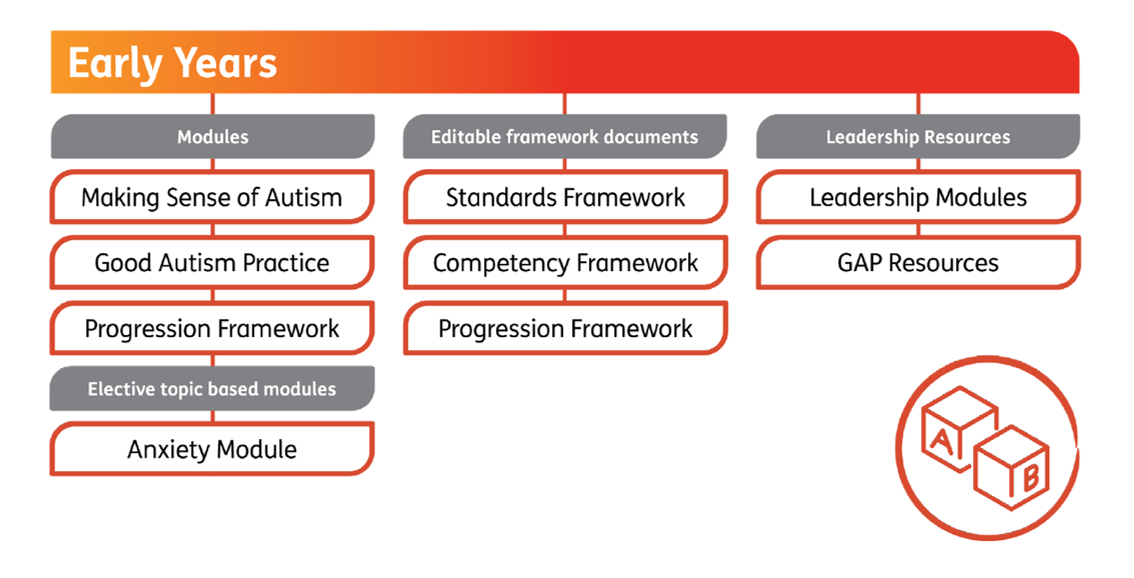
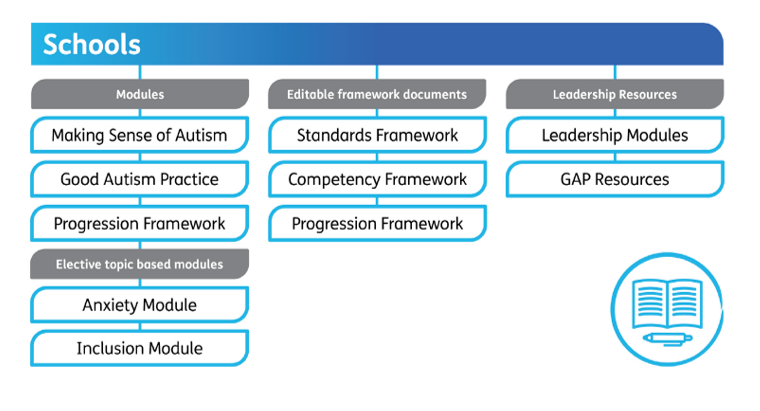
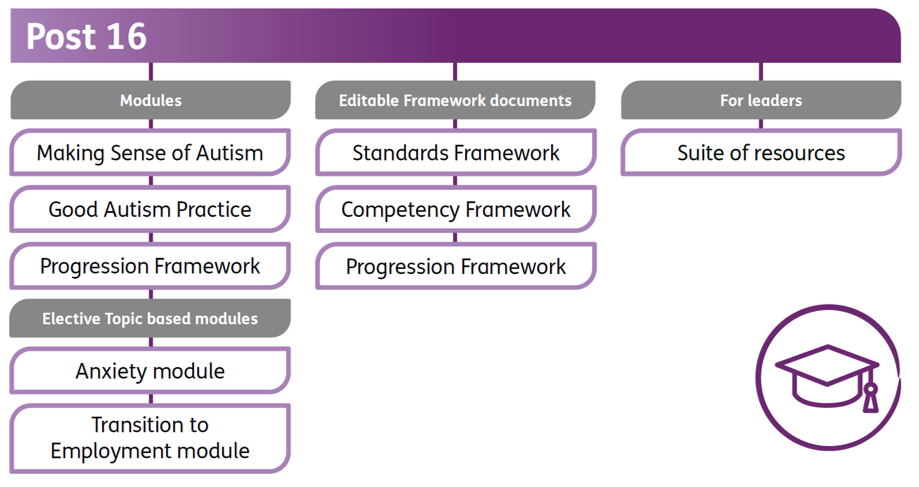
The training Courses for the three phases:
Making Sense of Autism
This is an awareness raising module for all staff in the school community. The module provides an introduction to autism and the reasonable adjustments that need to be considered when working with autistic pupils.
Learning objectives
After completing ‘Making Sense of Autism’, participants will be able to:
- Understand the importance of getting to know the pupil as an individual.
- Approach autism as a difference rather than as a disorder or impairment.
- Understand the importance of identifying the strengths and needs of autistic pupils.
- Know how three areas of difference can affect autistic pupils.
- Appreciate how important it is to listen to and learn from the perspectives of autistic pupils.
- Reflect on and implement reasonable adjustments to support autistic pupils you work with.
Good Autism Practice in Schools
This is a module for practitioners who work directly with autistic children in school settings, and it provides guidance on processes and tools that can help practitioners to implement good autism practice.
Learning Objectives
After completing ‘Good Autism Practice in Schools’, participants will be able to:
- Develop their knowledge of how the key areas of difference can impact on the learning of autistic pupils.
- Understand the importance of involving the pupil and family in the pupil’s education.
- Consider the approaches, strategies, and adaptations they can implement to remove barriers to participation and learning for autistic pupils.
- Reflect on how knowledge about autism and the individual autistic pupil can inform the one-page profile and the pupil-centred education plan.
Leadership, Inclusion and Structural Reasonable Adjustments 
This module will help leaders to understand what is needed to fully embed an inclusive culture. It looks at education legislation and guidance surrounding inclusion, the steps required to lead culture change and the importance of considering structural reasonable adjustments surrounding inclusion, and AET resources to support leaders with this.
Learning Objectives
After completing, ‘Leadership, Inclusion and Structural Reasonable Adjustments’, participants will be able to:
- Consider what is needed to lead cultural change in a setting.
- Look at how inclusive provision and structural reasonable adjustments can help a setting to be outstanding.
- Know about AET resources and guidance that can support leaders to provide inclusive environments through structural reasonable adjustments.
- Consider different ways of making structural reasonable adjustments to ensure autistic children and young people are fully supported.
AET Director Sarah Broadhurst talks about the AET Development Programme.
‘I will use the resources given to support my teaching. I have thought about particular individuals today during the training and have thought about I can support them further.’
Delegate from a Folkestone school.
The Training Principles 
‘Underpinning the AET training are eight key principles that provide a framework for the development of good quality education for all autistic children and young people and their families. They aim to support practitioners to meet the specific learning needs of autistic children and young people, as well as provide pointers to teaching approaches, methods, and resources to use in educational provision and practice. The underpinning ethos and values behind the principles focus on the need for mutual adaptation on behalf of the person with autism and those who live or work with that person. This means encouraging settings and practitioners to reflect on the dynamic relationship between the children and young people and those around them, understanding the way the person processes and experiences the world and on finding ways to empower and give the autistic children and young people control over their learning’.
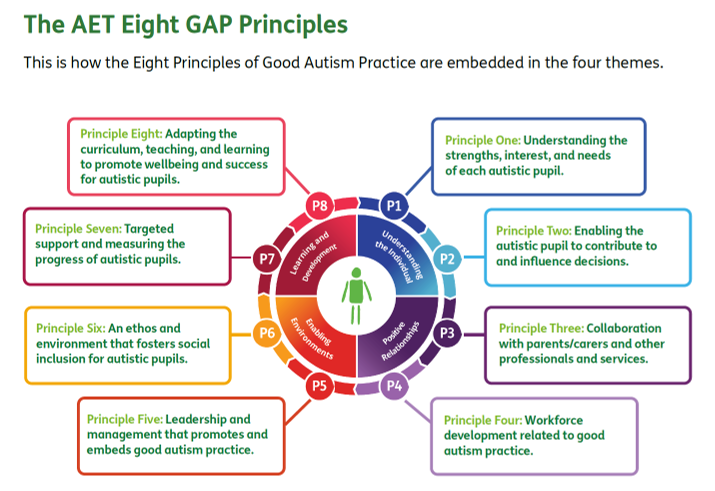
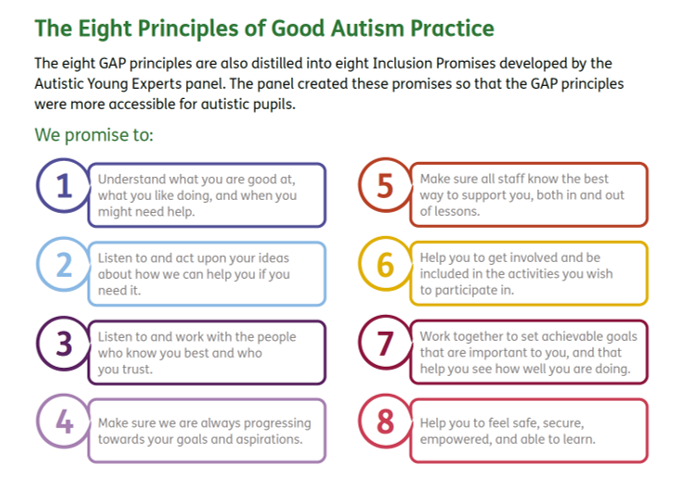
"I have chosen the principles and will be working towards them. Training was fantastic as usual."
Delegate from a Folkestone School
"As a governor at the school I plan to support the Special Educational Needs Coordinator (SENCO) and Senior Leadership Team (SLT) with implementing this training and look forward to observing the impact it is having on pupils across the school."
Delegate from a Folkestone School